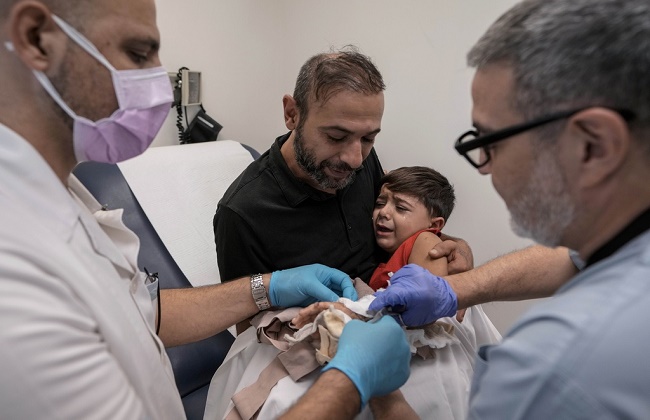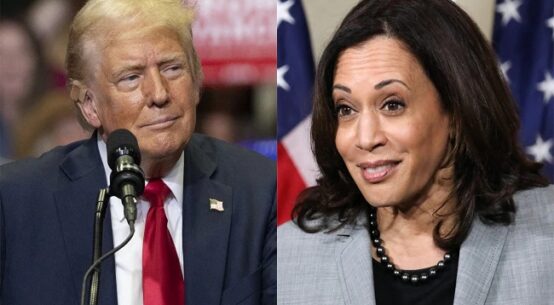
Curled up in his father ‘s lap, clinging to his chest, Hussein Mikdad cried his heart out. The 4-year-old kicked his doctor with his intact foot and pushed him away with the arm that was not in a cast. “My Dad! My Dad!” Hussein said. “Make him leave me alone!” With eyes tearing up in relief and pain, the father reassured his son and pulled him closer.
Hussein and his father, Hassan, are the only survivors of their family after an Israeli airstrike last month on their Beirut neighborhood. The strike killed 18 people, including his mother, three siblings and six relatives.
Ten days after surgery, doctors examining Hussein’s wounds said the boy is healing properly. He has rods in his fractured right thigh and stitches that assembled his torn tendons back in place on the right arm. The pain has subsided, and Hussein should be able to walk again in two months – albeit with a lingering limp.
A prognosis for Hussein’s invisible wounds is much harder to give. He is back in diapers and has begun wetting his bed. He hardly speaks and has not said a word about his mother, two sisters and brother.
“The trauma is not just on the muscular skeletal aspect. But he is also mentally hurt,” Imad Nahle, one of Hussein’s orthopedic surgeons, said.
Israel said, without elaborating, that the strike on the Mikdad neighborhood struck a Hezbollah target. In the war that has escalated since September, Israeli airstrikes have increasingly hit residential areas around Lebanon. Israel accuses the Lebanese militant group of hiding its capabilities and fighters among civilians. It vows to cripple Hezbollah, which began firing into northern Israel after Hamas’ Oct. 7 attack triggered the war in Gaza.
With more strikes on homes and in residential areas, doctors are seeing more children affected by the violence. More than 100 children have been killed in Lebanon in the past six weeks and hundreds injured. And of the 14,000 wounded since last year, around 10% are children. Many have been left with severed limbs, burned bodies, and broken families – scars that could last for a lifetime.
Ghassan Abu Sittah, a renowned British-Palestinian surgeon who is also treating Hussein, sees that long road ahead. This is his worry: “It leaves us with a generation of physically wounded children, children who are psychologically and emotionally wounded.”
At the American University of Beirut Medical Center, which is receiving limited cases of war casualties, Nahle said he operated on five children in the past five weeks – up from no cases before. Most were referred from south and eastern Lebanon.

